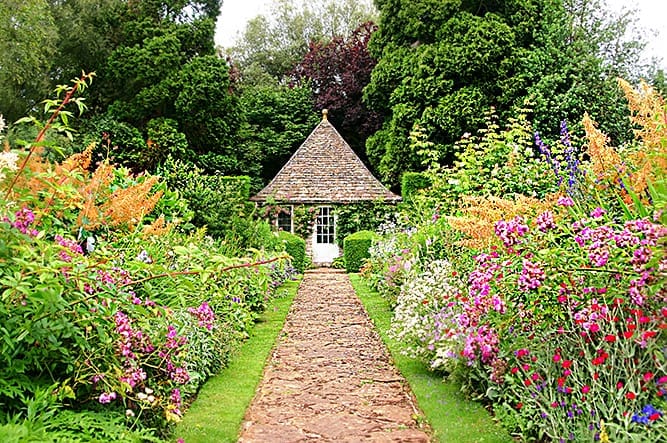These days, perfection has become the catch word to describe the least we should expect of ourselves. TV and magazines tout the perfect house, car, bottled water and, yes, the perfect life. As if that’s not enough, gardeners are bombarded with the concept of perfection in the garden. It’s as if the measure of your landscaping is nothing if it’s not comparable to a Hollywood movie set.
If it’s perfection we’re after, we should at least know what that term means. According to Webster’s, perfection is “having all the qualities or elements requisite to its nature or kind.” Just as I had given up all hope that being perfect was within the realm of possibility, this definition brought it back within my reach. After all, I actually do have a park-like landscape of well chosen trees, shrubs, seasonal flora and hardscaping.
As seasons change, as daylight turns to moonlight, as morning breaks, nature has the ability to highlight what is best in the garden at that very moment. At dawn, the Lady’s Mantle cups the morning dew in its upturned, scalloped foliage. Water beads up like liquid pearls. Autumn awakens the long-held secret colors within every leaf. So a garden, by its very nature, does have the potential for perfection.
Less fitting to my ideal of a perfect garden is this entry. “Meeting all requirements; lacking no essential.” As wonderful as I feel about my own garden at times, it only takes one new plant catalog in the mail or a visit to a friend’s garden to convince me that mine is lacking. I need more variegated foliage, banks of grasses backlit by the setting sun and flowers en masse for sweeps of seasonal color. Like the seed head of a dandelion in a wind storm, the longing for what I don’t have scatters perfection to the wind.



